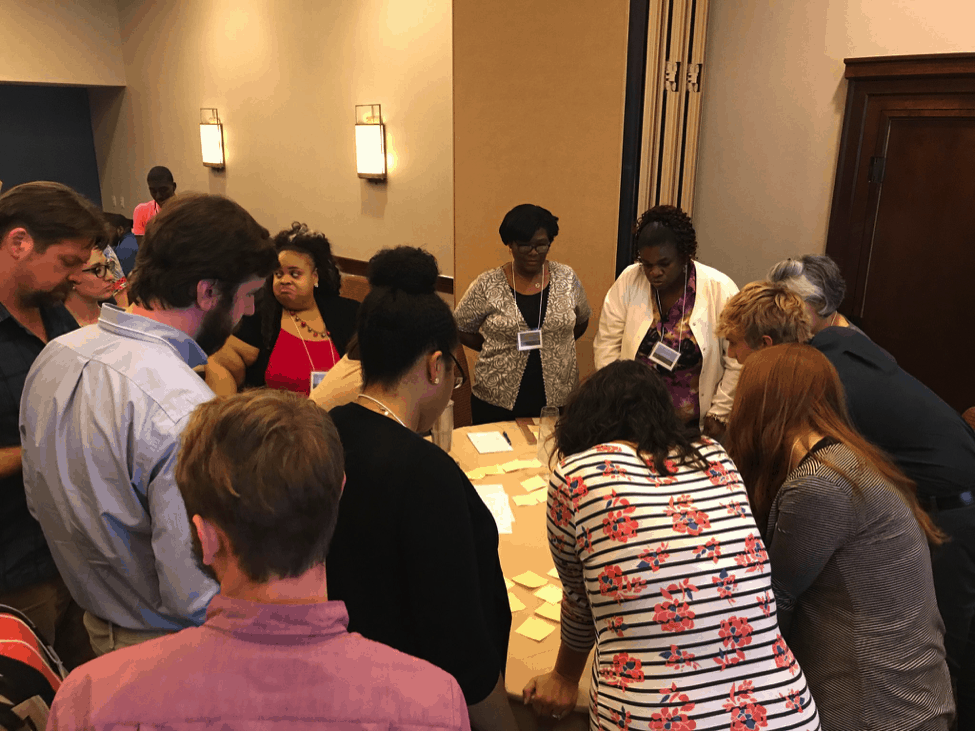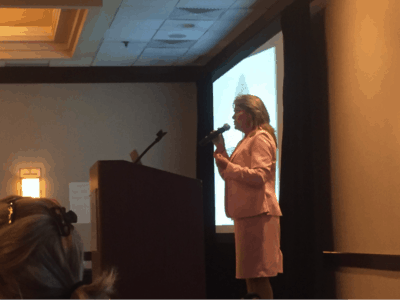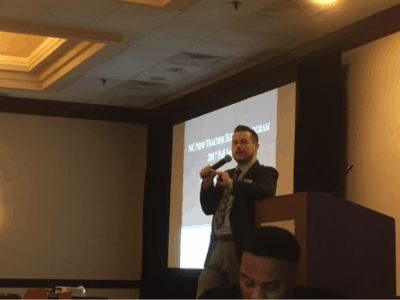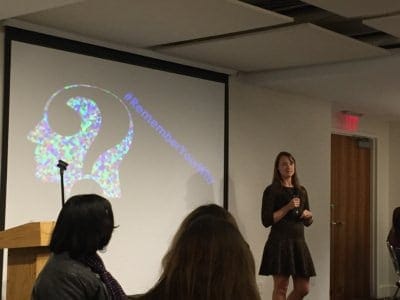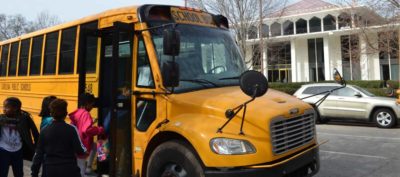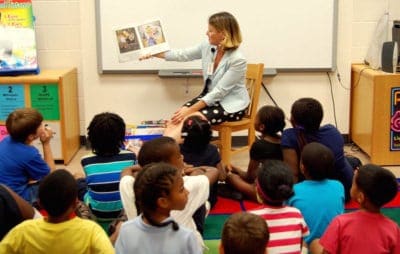When teachers come together to reflect on their practice, students ultimately win.
The NC New Teacher Support Program (NC NTSP) kicked off a great start to the school year by bringing nearly 500 beginning teachers from more than 200 schools and 50 school districts to Charlotte and Raleigh for its annual Fall Institute.
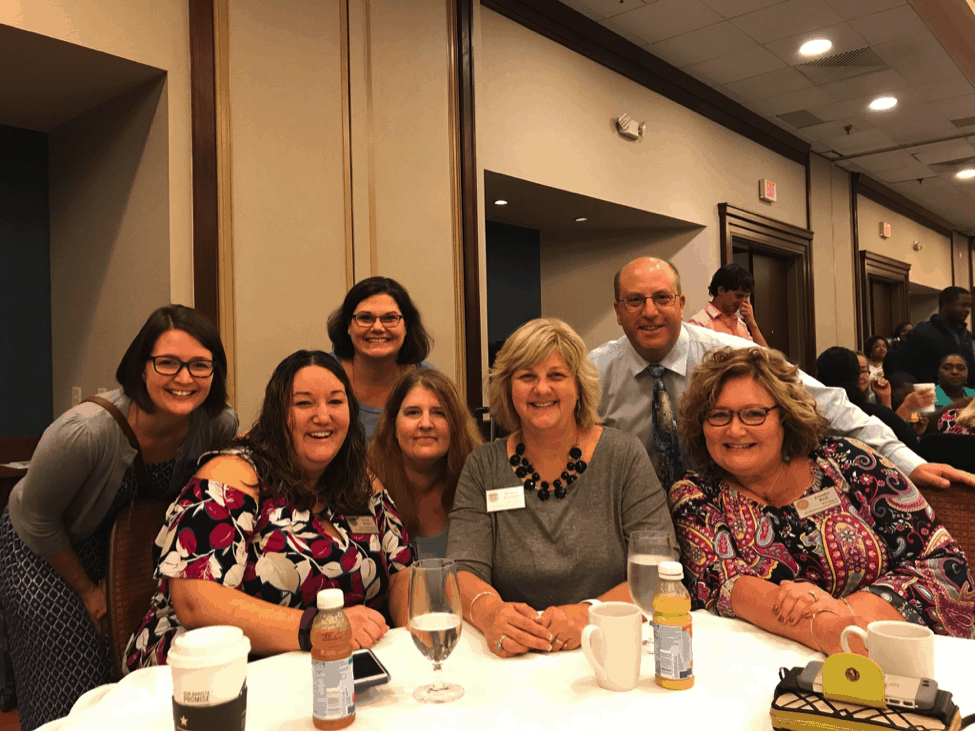

At the Institute, beginning teachers interacted with content area experts and met with their peers to learn more about planning, instruction, and assessment strategies to help students improve their learning. Keynote speakers included North Carolina’s Teacher of the Year Lisa Godwin, Charlotte-Mecklenburg Schools master teacher,Justin Ashley, and nationally-renowned Durham Public Schools teacher Stuart Albright.
Each year, the NC NTSP hosts Institute for beginning teachers with sessions organized by strands related to the North Carolina Professional Teaching Standards. The 2017 sessions included major themes, such as “Know Your Students,” “Providing Feedback,” “Planning for Learning,” and “Looking to the Future.”
Not only did teachers meet in content-specific groupings to plan lessons with each other, but elementary, middle, and high school teachers collaborated to learn about motivating students, growth mindsets, teacher sensitivity, student talk, and the use of technology in the classroom.
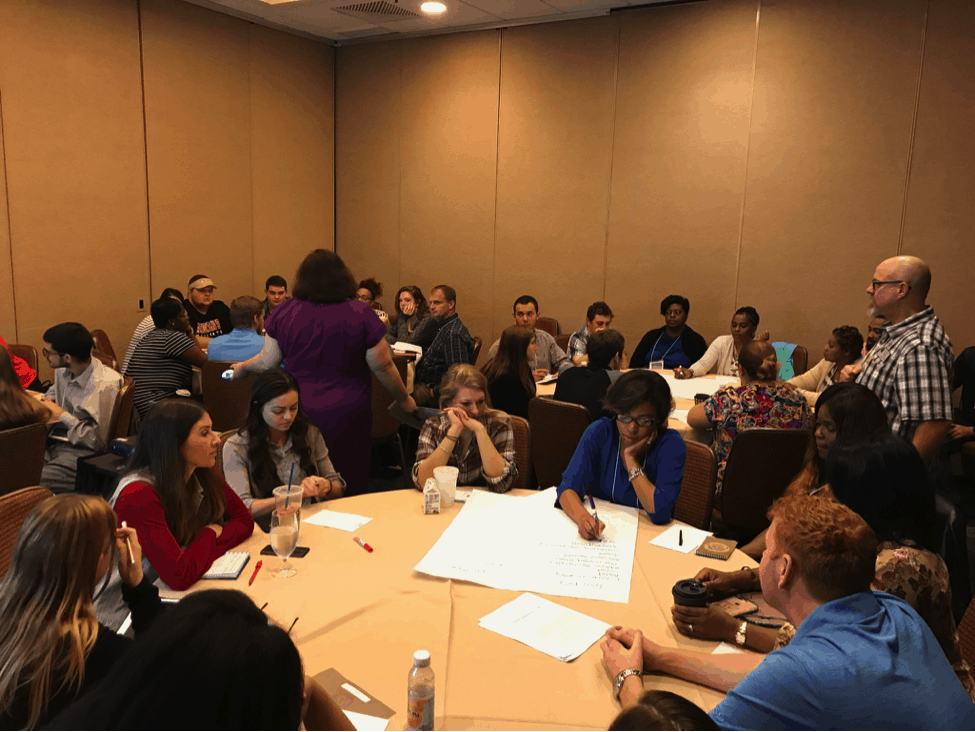

Anson County science teacher Cephus Pickett appreciated the opportunity to collaborate with other science teachers from across the state. Bladen County teacher Wanda Bryant liked the way the sessions broke down critical information to help her understand material as a new educator. Wilson County Schools Beginning Teacher Coordinator Sherri Jernigan attended with all 47 of her district’s teachers and said it was one of the best professional development opportunities she has experienced.
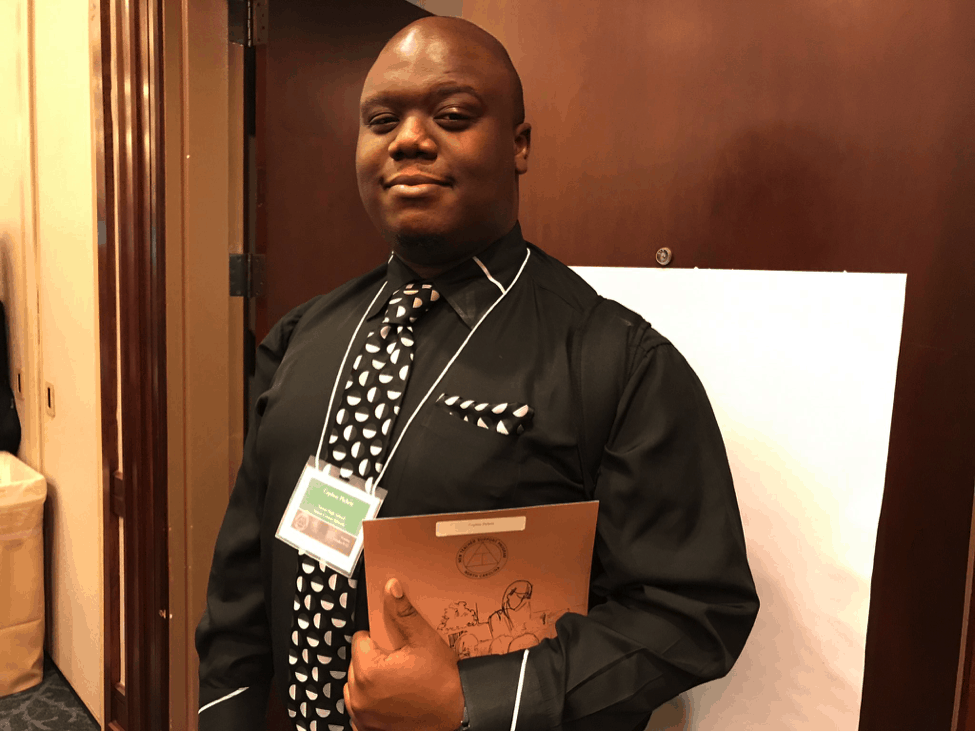

The NC NTSP is legislatively supported by the North Carolina General Assembly and provides comprehensive, university-based induction support through nine of the UNC system’s schools of education.
In addition to its annual Institute, the NC NTSP provides aligned professional development with school districts and intentional, individualized, weekly instructional coaching to help beginning teachers improve. The NC NTSP has demonstrated strong teacher retention rates and outperforms non-participants in state, district, and school level teacher retention.
